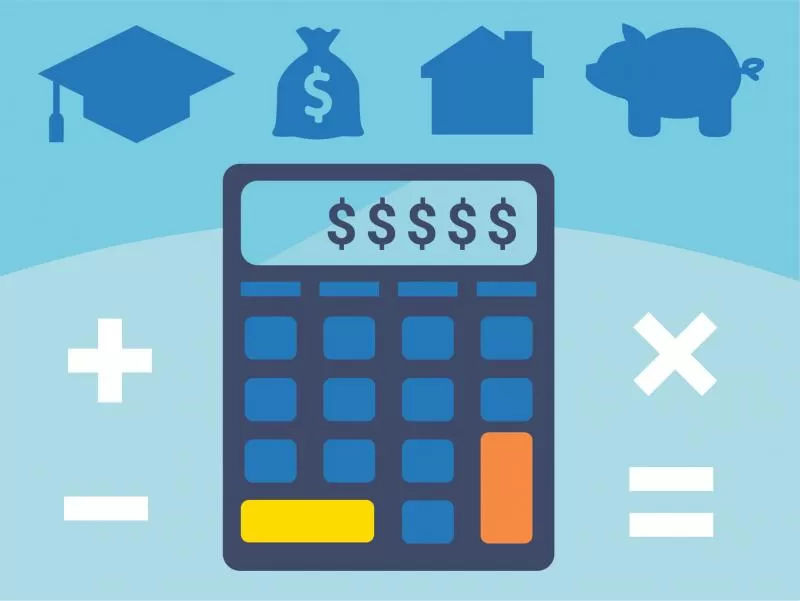Use these free financial calculators to help plan financial aid packages; explore your consumer loan payments, principal and interest rate; compare monthly mortgage payments; and get estimates based on your actual Social Security earnings record.

Financial Calculators
Use these tools to forecast and assess your financial choices. You may discover a more effective way to manage your money.
-
College Savings Calculator
College Scorecards in the U.S. Department of Education’s College Affordability and Transparency Center make it easier for you to search for a college that is a good fit for you.
You can use the College Scorecard to find out more about a college’s affordability and value so you can make more informed decisions about which college to attend.You can find scorecards for colleges based on factors such as programs or majors offered, location, and enrollment size.
Get started with the College Scorecard
Helpful Related Links
-
Consumer Loan Calculator
This calculator, from MilitaryOneSource, lets you explore your consumer loan. You can adjust variables, including number of payments, principal, and interest rate, to determine your monthly payment.
-
Mortgage Loan Calculator
These homeownership and mortgage loan calculators, from Freddie Mac, will help you understand the financial differences between renting and homeownership. Additionally, calculate how much you can borrow or afford, understand the financial differences between fixed- and adjustable-rate mortgages, estimate closing costs, or learn how a different term (for example, a 15-year vs. 30-year term) affects your mortgage payment and overcall cost of the loan.
-
Savings & Retirement Estimator
The Social Security Administration’s Retirement Estimator calculator will provide estimates based on your actual Social Security earnings record. Other useful links from this calculator include estimating your life expectancy and guidance on the best age to start receiving retirement benefits.
You can use the retirement estimator if you have enough Social Security credits to qualify for benefits and you are not:
- currently receiving benefits on your own Social Security record;
- age 62 or older and receiving benefits on another Social Security record;
- or eligible for a pension based on work not covered by Social Security.

